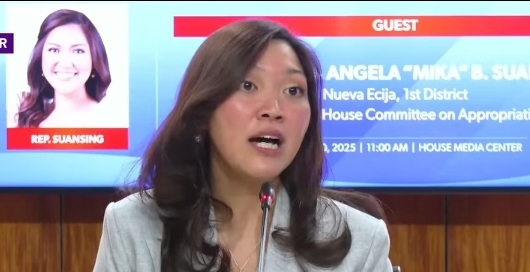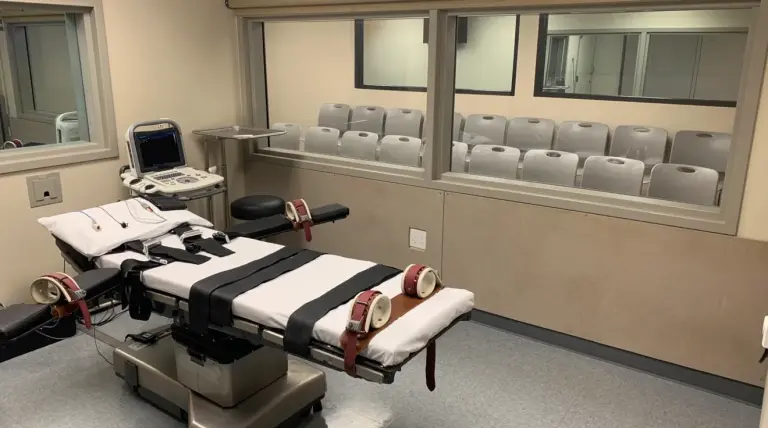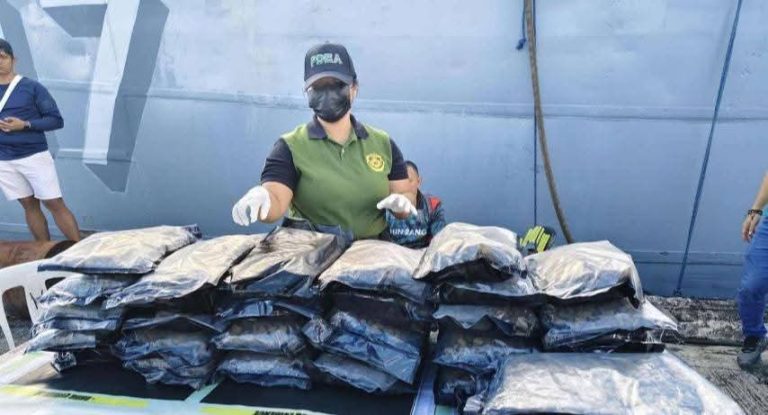
QUEZON CITY —HOUSE Committee on Appropriations Chair and Nueva Ecija Representative Mikaela Angela Suansing on Monday clarified that no taxpayer money is directly allocated to unprogrammed appropriations (UAs), stressing that these are merely standby authorizations and not actual budget items.
Suansing said the UAs, which have drawn public attention in recent weeks, are not funded by taxes or existing revenues and can only be tapped once the government generates excess income or secures new foreign loan agreements.
“I know this has been said a lot of times over the past few weeks, but [UAs] are standby appropriations duly authorized and approved by Congress in the General Appropriations Act,” Suansing said during a press briefing at the House.
“Standby appropriations lang po ito. Hindi po ito nakapaloob doon sa ₱6.79-trillion na national budget na atin pong inaprubahan.”
Suansing underscored that unprogrammed funds remain inactive until specific fiscal conditions are met.
“If you would want to look at it from a different lens, there is currently no funding for [UAs],” Suansing explained.
“Wala pong parte ng ating buwis sa ₱6.793 trillion ang napupunta sa unprogrammed appropriations sa kasalukuyang porma ng General Appropriations Bill.”
Suansing highlighted that the ₱243.2 billion level for UAs in the 2026 GAB is ₱120 billion lower than the ₱363.4 billion UA level in the 2025 GAA.
The move to safeguard against potential abuse of UA funds, she added, was consistent with the House’s broader reforms under the leadership of Speaker Faustino “Bojie” Dy III to make the national budget more transparent.
To ensure accountability, Suansing said unprogrammed funds would not be used for infrastructure projects, which had previously included flood control allocations.
“At para po sa taong 2026, gusto po nating siguraduhin na hindi po maaabuso ang [UAs],” she said.
“At dahil po doon, atin na pong tinanggal ang imprastruktura mula doon sa dating SAGIP (Strengthening Assistance for Government Infrastructure Program). Ngayon po, ang tawag na lang po sa kanya ay Strengthening Assistance for Social Programs.”
She added that only social programs in education, health and social protection may now be charged under this provision.
“Wala na pong pwedeng flood control projects. Wala na pong pwedeng mga kalsada o mga tulay na pwedeng batakin mula sa Strengthening Assistance for Social Programs,” she added.
Suansing said that of the ₱243.2 billion in unprogrammed appropriations, ₱133.1 billion (54.7 percent) is reserved for foreign-assisted projects (FAPs), ₱50 billion for the Armed Forces of the Philippines (AFP) modernization program, and ₱45 billion for Strengthening Assistance for Social Programs.
She explained that the FAPs fund is essential for projects backed by Japan, France, the World Bank, the Asian Development Bank, and other development partners.
“I think both the House and the Senate were very clear on this — that we would need to retain the funding for [FAPs],” she said.
“Hindi po kasi pwede na kapag meron tayong commitment sa international level, hindi po natin basta-bastang pwedeng talikuran ‘yun.”
Suansing said unprogrammed funds have proven crucial for disaster response and emergency relief.
“Nung tumama po ‘yung lindol at mga bagyo sa Masbate, Cebu at Davao, kinailangan po nating bumatak ng ₱5 billion mula sa [UAs] para sa AICS (Assistance to Individuals in Crisis Situations) para po makapagbigay ng karagdagang tugon doon po sa mga nasalanta ng kalamidad.”
“That’s a really good illustration of how [UAs] can help the government operationalize,” Suansing pointed out.
She added that without UAs, “wala pong agarang tulong na mailalabas ang DSWD (Department of Social Welfare and Development) para sa mga nasalanta ng bagyo at ng lindol.”





